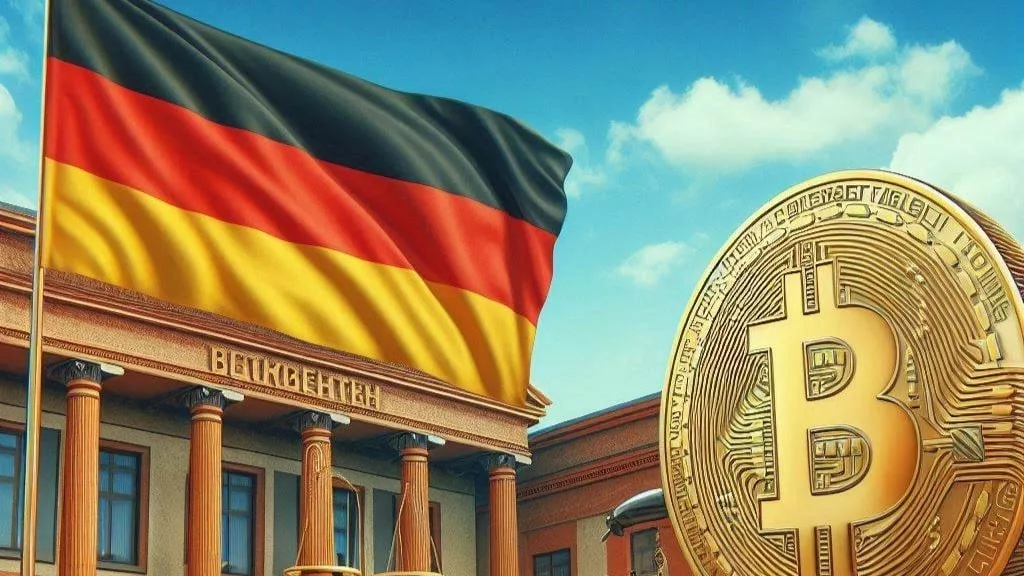
Germany has commenced the auction of a substantial amount of Bitcoin seized during the crackdown on Movie2K, a prominent online piracy platform. This auction not only signifies a pivotal moment in digital asset management by governmental bodies but also raises crucial questions about its broader implications for market stability, regulatory landscapes, and global investor sentiment.
Recent reports confirm that German authorities have initiated the auction of a portion of the Bitcoin confiscated during the Movie2K operation earlier this year. According to market analysts, approximately 2,700 BTC has been transferred to various centralized exchanges and over-the-counter (OTC) services. This strategic initiative reflects Germany’s objective to convert seized cryptocurrencies into fiat currency, adhering strictly to legal protocols while seeking to recover proceeds from illicit activities.
Despite the initial sales, the German government still holds a significant portion of Bitcoin, totaling approximately 6,384 BTC valued at approximately $364.59 million based on current market rates. Analysts monitoring the situation speculate that at the current rate of sales, the remaining Bitcoin holdings could be exhausted within a relatively short period. This potential depletion raises concerns about market liquidity and its potential impact on Bitcoin’s price stability within the broader cryptocurrency market.
The auctioning of seized digital assets by governmental authorities introduces complex legal and market considerations. Unlike traditional asset seizures, handling cryptocurrencies presents unique challenges related to market liquidity, price volatility, and regulatory compliance. Effective regulations governing the sale and disposal of confiscated digital assets are crucial for maintaining market integrity and mitigating potential disruptions arising from large-scale asset liquidations.
Key players in the cryptocurrency exchange ecosystem, including Bit stamp, Coin base, and Kraken, play pivotal roles in facilitating the transfer and potential resale of the seized Bitcoin. Recent returns totaling over 4,169 BTC to the German government underscore exchanges’ adherence to regulatory requirements and their role in managing confiscated digital assets within established legal frameworks.
The influx of Bitcoin resulting from government auctions could significantly influence market dynamics. Increased supply may exert downward pressure on Bitcoin prices, influencing market sentiment and prompting strategic adjustments among investors and traders.
Looking ahead, the market’s response to Germany’s ongoing Bitcoin auctions remains uncertain and contingent upon various factors. Analysts and industry experts speculate on potential outcomes, including short-term price fluctuations and long-term implications for Bitcoin’s resilience as a digital asset. Considerations such as regulatory developments, shifts in investor sentiment, and global economic conditions will likely shape Bitcoin’s trajectory in the coming weeks and months.
Germany’s approach to managing seized Bitcoin assets sets a precedent with implications extending beyond its borders, resonating globally within the cryptocurrency community and regulatory circles. Effective regulation and supervision of digital asset seizures are crucial for upholding legal standards, ensuring market stability, and safeguarding investor interests. Transparent regulatory frameworks are pivotal in navigating the complexities of digital asset management and mitigating risks associated with illicit activities.
The auctioning of a substantial quantity of Bitcoin by the German government has flashed discussions among investors and stakeholders about its potential repercussions on market stability and investor confidence. Effectively managing the market implications of government asset sales demands a balanced approach that considers market dynamics, regulatory compliance, and measures to protect investor interests.
In conclusion, Germany’s ongoing Bitcoin auctions resulting from the Movie2K case represent a critical juncture for the cryptocurrency industry and global regulatory authorities. The management and disposition of seized digital assets present unique challenges that necessitate careful consideration of legal enforcement, market integrity, and investor confidence.
As stakeholders continue to monitor developments, proactive engagement with regulatory frameworks and market conditions will be essential in mitigating risks and capitalizing on opportunities within the evolving landscape of cryptocurrencies. Understanding the implications of government asset sales on market stability and investor sentiment is essential for navigating the complexities of the digital asset ecosystem effectively.




Get the latest Crypto & Blockchain News in your inbox.